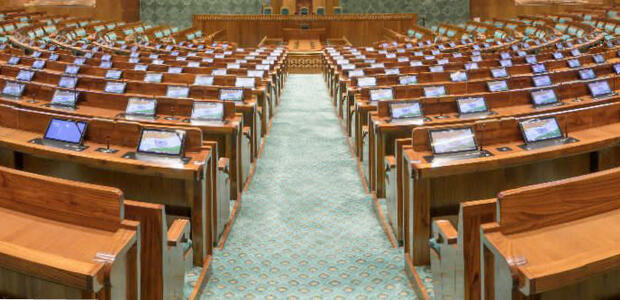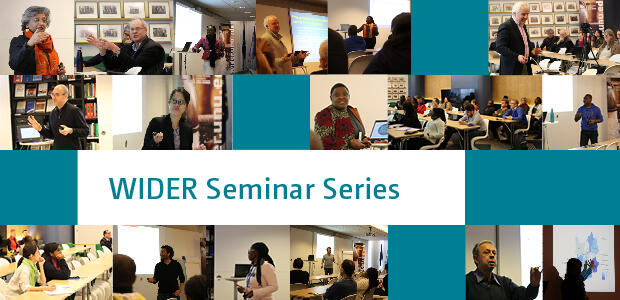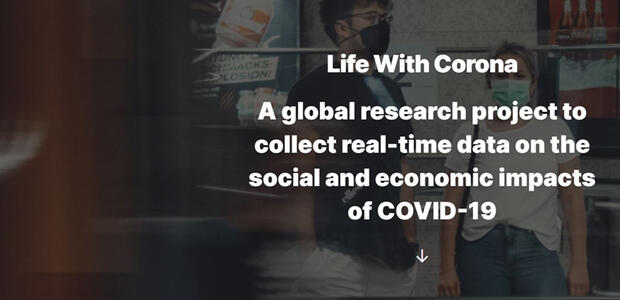Working Paper
Who trusts?
In the developing world, clientelism is common. In Africa, public office is often used to redistribute resources to ethnically defined constituencies, and this form of clientelistic exchange is a key determinant of vote choice. Does clientelistic...
Working Paper
‘Ask not what your country can do for you’
This paper investigates how persistent changes in trust caused by the Great Recession have affected how governments and citizens across Europe responded to the next global crisis: the COVID-19 pandemic.We show that increases in individualism and...
Working Paper
Trust a few: natural disasters and the formation of trust in Africa
Individuals are at their most mental plasticity in their impressionable years (ages 18–25 years) forming long-term attitudes and behaviours essential to functioning in a society, such as trust.In this paper we ask how exposure to natural disasters...
Research Brief
The prolonged effects of terrorism
Terrorist violence has a profound influence on social attitudes, including trust in governmental institutions and attitudes towards migration and civil freedoms. Acts of terrorism cause citizens to experience a complex range of negative emotions...
Working Paper
Institutional trust in the time of corona
We study how the stringency of policy measures to counter the COVID-19 pandemic affects individuals’ trust in formal institutions. Drawing on micro-level panel data from Germany spanning an 18-month period from the onset of the pandemic, we show that...
Working Paper
Rule of law in Mozambique
This paper examines the state and evolution of the rule of law in Mozambique, focusing on key dimensions such as voice and political participation, judicial independence and accessibility, corruption, access to basic services, personal security, and...
Working Paper
Riots and social capital in urban India
This paper explores the relationship between household exposure to riots and social capital in urban India using a panel dataset collected by the authors in the state of Maharashtra. The analysis applies a random-effect model with lagged covariates...
Working Paper
Trust as state capacity
This paper explores the link between trust in government, policy-making, and compliance. It focuses on a specific channel whereby citizens who are convinced that a policy is worthwhile are more motivated to comply with it. This in turn reduces the...
Working Paper
Trust the hand that protects you—Does UN peacekeeping harm post-conflict governments’ legitimacy?
Rebuilding state legitimacy is a thorny challenge in the aftermath of civil wars. The international community has stepped in to support post-conflict states in rebuilding state capacity, sometimes replacing governments in providing public goods. Most...
Working Paper
The legacy of Mexico’s Drug War on youth political attitudes
We investigate the impact of childhood exposure to organized criminal violence on sociopolitical attitudes in Mexico, where an entire generation of youths has been raised amid the country’s most violent conflict over the past century. We fielded an...
Working Paper
‘Ten pound touts’: post-conflict trust and the legacy of counterinsurgency in Northern Ireland
This paper explores the legacies of wartime rebel governance and counterinsurgency tactics. Insurgents rely on civilian support for resources, information, and cover. To defeat insurgents, the state attempts to extract information from communities...
Journal Article
Africa’s lockdown dilemma
As the COVID-19 pandemic unfolded, sub-Saharan African countries faced the dilemma of how to minimize viral transmission without adversely affecting the poor. This study proposes an index of lockdown readiness, taking into account housing conditions...
Working Paper
Nation building in post-conflict settings
How do states rebuild nations after a major conflict? Truth and Reconciliation Commissions (TRCs) have emerged as one of the most common interventions to achieve this objective. Despite their popularity, little is known about their efficacy to foster...

 Join the network
Join the network





